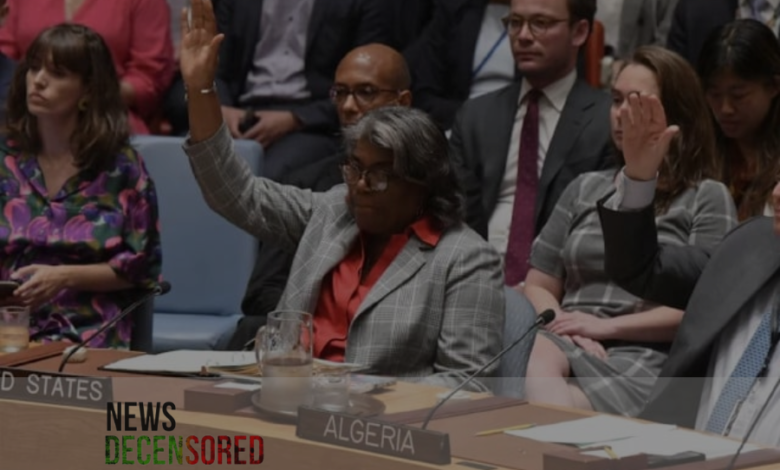UN Security Council Backs Biden’s Ceasefire Proposal for Israel-Hamas Conflict

In this regard, the United Nations Security Council on Monday supported the ceasefire plan that US President Joe Biden announced to stop the eight-month warfare between Israel and Hamas in the Gaza Strip. The resolution also encourages the Palestinian militants to agree to the deal, contributing a large part to the international attempt to cease the conflict.
Hamas praised the decision to adopt the American-scripted plan. It affirmed its willingness to negotiate with the intermediaries to enforce the basic tenets of the plan if those are” by what the Palestinian nation and their struggle require.
Although Russia did not actively vote in favour of the resolution, all the other 14 member nations of the Security Council backed it. This support indicates more or less global solidarity for Biden’s three-phase ceasefire plan, unveiled on May 31 as an Israeli plan with support from the US president.
Thus, voting in support of the resolution, the United States underlined, vox noktasi, “Today we voted for peace,” the U.S. Ambassador to the UN, Linda Thomas-Greenfield, said. The resolution applauds a newly tabled truce plan, notes Israel’s surrender to it, and asks Hamas to consent to it while appealing to both sides to enforce the ceasefire immediately, unconditionally.
Algeria, the only Arab member state in the council, supported the resolution. Algeria’s UN Ambassador Amar Bendjama stressed that it could be a vital chance to start an immediate and international cessation of hostilities. It gives a little light to the Palestinians,” Bendjama said, something that makes the need to search for ways to end the violence crucial.
The ceasefire plan is also laid down in the resolution, which states that if the negotiations for phase one exceed the six-week limit, then the ceasefire will continue on a week-to-week basis as negotiations will remain ongoing.
However, Russia did not consider the decision adequate in its details and specifics. Russian UN Ambassador Vassily Nebenzia has disputed the certainty of Israel’s commitments and raised concerns that problematic agreements with a “foggy code” can also be endorsed by the Security Council. He added that Russia voted to support its historic allies in the Arab world.
Israel is a member of the United Nations Security Council for September, and its UN Ambassador, Gilad Erdan, was present physically during the vote. Still, he did not speak to the council. Israeli UN envoy Reut Shapir Ben Naftaly repeated Israel’s main objectives in Gaza – to liberate all hostages, disarm and disassemble Hamas as a military and a governing authority, and guarantee that Gaza cannot pose a threat to Israel any longer. Indeed, if anyone is to blame for this unrelenting bloodshed, it’s Hamas, and it’s Hamas alone, as she went on to say.
The Security Council had earlier urged the parties to cease hostilities institutionally and urged Hamas to release all its hostages unconditionally. Since April last year, diplomats from the US, Egypt, and Qatar have tried to broker a cease-fire. Hamas has insisted on cessation of the war and the Israelis pulling out of the Gaza Strip, which has an estimated population of 2.3 million people.
This conflict was catalysed by an attack from Hamas on October 7, which led to over 1200 deaths of Israelis and the taking of more than 250 hostages. Palestinian casualties have exceeded 37,000 due to Israeli military operations as a countermeasure.
When more powerful nations allow countries to promote peace on their own, the international community takes a positive step by passing a resolution to end the war; however, the process towards ceasing fire and focusing on the issues that have caused the war is entire of more challenges.




